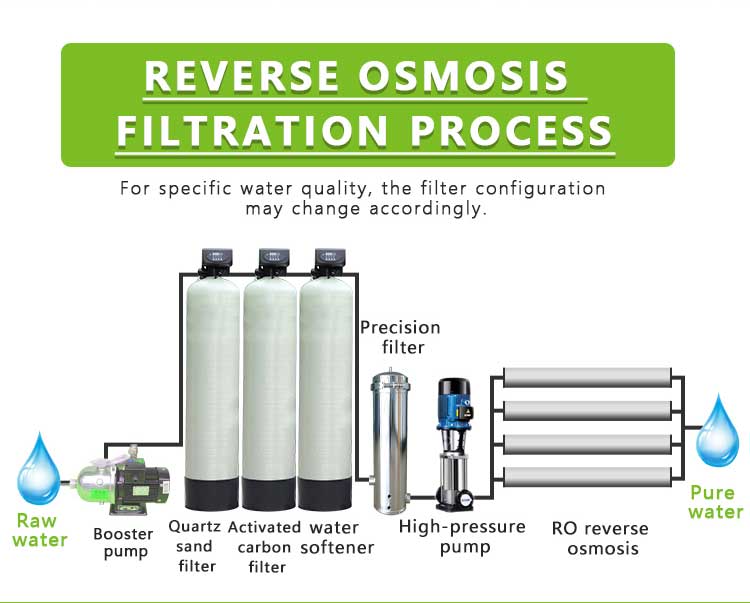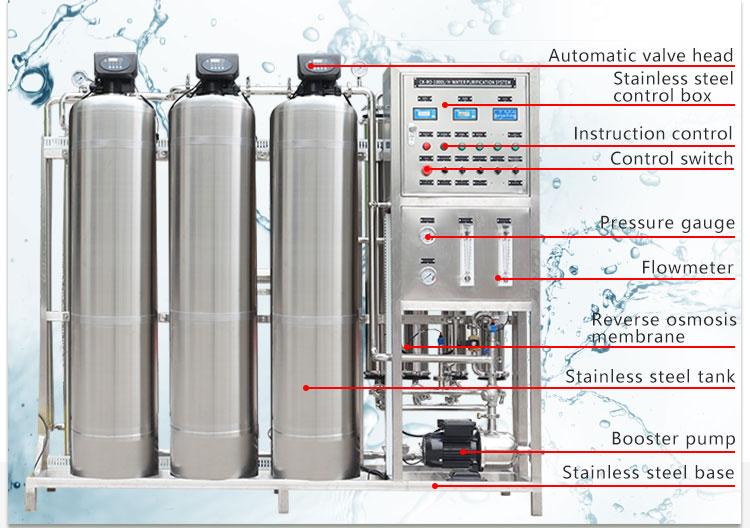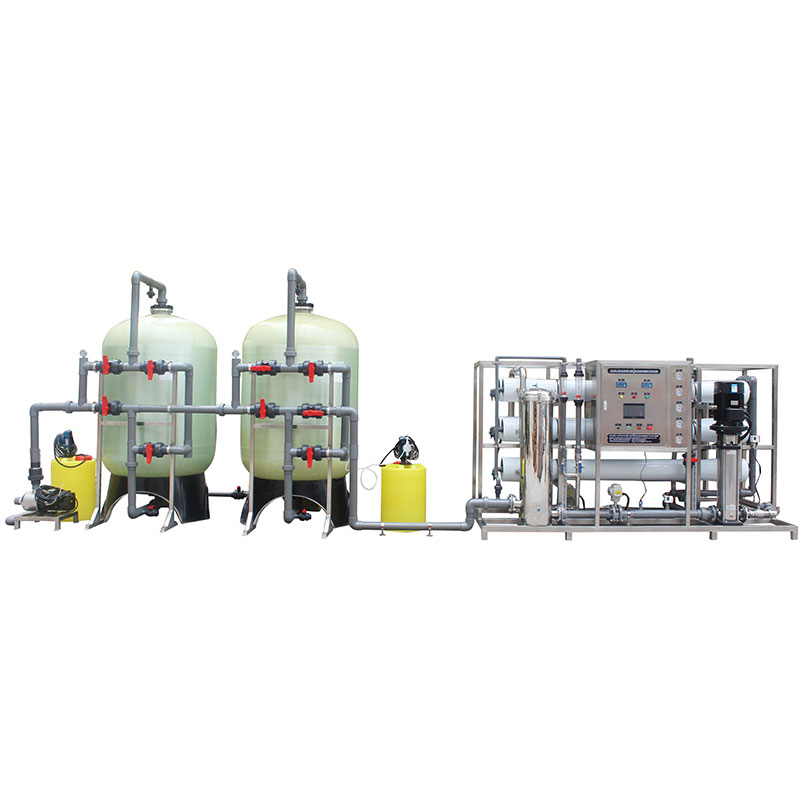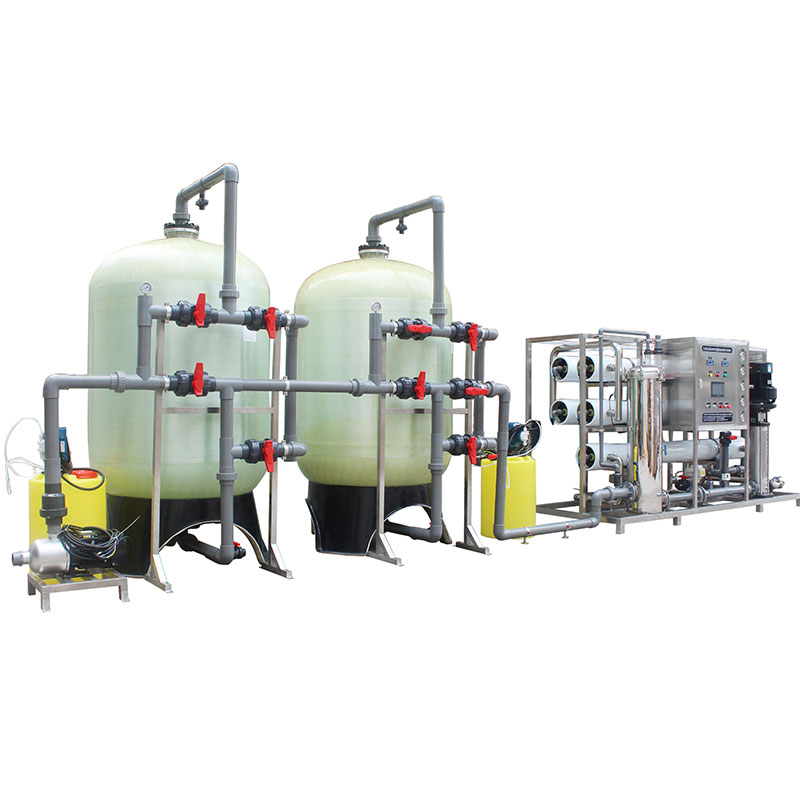What is the filtration rate of a 500L/hour water filter?
Water filters play an important role in daily life and industrial applications. Whether it is household drinking water treatment, industrial production water purification, or agricultural irrigation water treatment, filters play a vital role. However, many people have certain misunderstandings about the key concept of "filtration rate", especially for a water filter with a nominal processing capacity of 500L/hour, is its filtration rate really equivalent to 500?
This article will take a deep look at what is a good filtration rate, how to understand the filtration rate of a 500L/hour water filter, and other key factors that affect filter performance.

What is filtration rate?
Filtration rate is usually used to describe the amount of water that a filter can process in a certain period of time or the efficiency of filtration. Specifically, it involves two main aspects: the amount of water filtered (i.e. flow rate) and the effect of filtration (i.e. filtration accuracy).
Flow rate is usually measured in terms of the amount of water processed per hour, in liters/hour (L/h) or cubic meters/hour (m³/h). For a water filter with a nominal processing capacity of 500L/hour, it means that under ideal conditions, it can process 500 liters of water per hour. However, flow rate does not fully represent the filtration rate, and the filtration effect needs to be considered.
Filtration accuracy refers to how large particles of impurities the filter can retain. Usually, the filtration accuracy is measured in microns (μm), such as 5μm, 10μm, 20μm, etc. The higher the filtration accuracy, the smaller the particles that the filter can remove, and the purer the water quality. But this often affects the water flow rate, thereby affecting the overall flow rate.
Filtration efficiency is usually expressed as a percentage, which refers to the proportion of impurities that the filter can retain to all incoming impurities. For example, if the filtration efficiency of a filter is 95%, it means that 95% of the impurities can be effectively removed, and only 5% of the impurities can pass through the filter membrane into the downstream.

What is the filtration rate of a 500L/hour water filter?
In order to answer the question "Is the filtration rate of a 500L/hour water filter 500", we first need to clarify the specific meaning of "filtration rate". In the field of water treatment, the filtration rate is not simply equivalent to the flow rate of the equipment (such as 500L/h), but a concept that comprehensively considers the filtration accuracy and efficiency.
1. The difference between the nominal flow rate of the equipment and the actual flow rate
A water filter with a nominal processing capacity of 500L/hour is usually the maximum flow rate that can be achieved under ideal conditions (such as water pressure, inlet water quality, temperature and other parameters meet the design requirements). However, the flow rate in actual application may be lower than the nominal value for the following reasons:
● Water quality problems: If the inlet water contains more impurities, particles or suspended matter, the risk of filter clogging increases and the flow rate may be limited.
● Water pressure fluctuations: If the water pressure is insufficient, the filter cannot reach the nominal flow rate; on the contrary, if the water pressure is too high, it may cause the filter element to break or the water quality to be poor.
● Filter element life: As the use time increases, the filter element will gradually clog, resulting in a decrease in flow rate.
Therefore, the nominal flow rate of 500L/hour is not equal to the actual flow rate of the filter, and it cannot be directly used as a measure of the filtration rate.
2. The impact of filtration accuracy on flow rate
As mentioned above, filtration accuracy is an important factor affecting filter performance. For a 500L/hour filter with a filtration accuracy of 10μm, if the filtration accuracy is to be increased to 5μm, the actual flow rate of the device is likely to decrease. This is because a finer filter membrane increases the resistance to water flow, thereby reducing the amount of water treated per unit time. Therefore, there is a trade-off between filtration accuracy and flow rate. The higher the filtration accuracy, the smaller the flow rate.
3. The concept of comprehensive filtration rate
Combining the above factors, the "filtration rate" of a 500L/hour filter cannot be simply expressed as "500". A good filtration rate should be a comprehensive value that balances flow rate, filtration accuracy and filtration efficiency. Specifically, this means that the filter needs to maintain the highest possible flow rate and effectively remove impurities while ensuring water quality safety.
What characteristics should a good filtration rate have?
To determine what is a good filtration rate, it is necessary to consider the performance of the filter in actual application, rather than just a simple superposition of equipment parameters. A good filter should be able to maintain a stable water treatment volume during long-term use. Even in the face of water quality fluctuations, filter aging, etc., the filter should still ensure sufficient flow without a significant drop in a short period of time.
Secondly, the filter not only needs to process enough water, but also needs to have efficient impurity removal capabilities. High filtration efficiency means that a larger proportion of impurities can be removed to ensure the purity of downstream water quality. This is especially important in drinking water filtration. In addition, a good filtration rate means that the equipment can maintain efficient operation within a certain maintenance cycle without frequent replacement of the filter element or cleaning. Too short a maintenance cycle means that the filter is prone to clogging, the flow rate decreases, the filtration efficiency deteriorates, and the cost of use increases.
The filtration accuracy needs to be selected according to the actual application needs. In some application scenarios, such as industrial water treatment, high-precision filtration is essential. In other scenarios, such as agricultural irrigation, where the water quality requirements are relatively low, low-precision filters can be selected to increase the flow rate.

How to choose a suitable filter?
According to the above analysis, when choosing a suitable water filter, it is necessary to comprehensively consider the filtration rate, flow rate, precision and specific usage scenarios. Different application scenarios have different requirements for water quality. For example, drinking water treatment requires high-precision, high-filtration efficiency filters, while agricultural water may pay more attention to flow. Therefore, when choosing a filter, you must first clarify your own needs and determine the required flow rate, filtration accuracy and filtration efficiency.
Secondly, the nominal flow rate is not equal to the actual flow rate. When purchasing equipment, you should refer to the performance test results in the actual use scenario to evaluate whether the equipment can achieve the expected goals in actual operation. In addition, the impact of external factors such as water quality and pipeline pressure on equipment performance should also be considered.
In addition, in a complex water treatment system, a single filter may be difficult to meet all needs. At this time, you can consider a multi-stage filtration system, combining equipment with different filtration accuracy and flow rate to achieve the best filtration effect. For example, the pre-filter can first remove large particles of impurities, and the subsequent filter can then perform fine filtration to ensure the good operation of the overall system.
Therefore, in summary: a good filtration rate is not a simple value, but a performance indicator that combines flow rate, filtration accuracy and filtration efficiency. For a water filter with a nominal processing capacity of 500L/hour, its filtration rate is not equivalent to "500", but it needs to comprehensively consider multiple factors such as flow performance, impurity removal capacity and equipment maintenance cost in actual applications.





